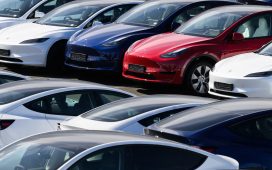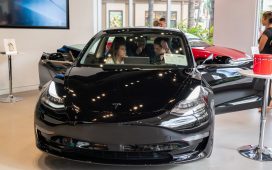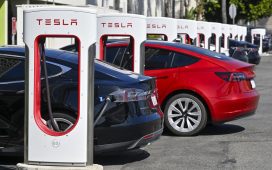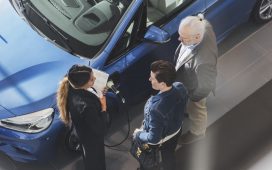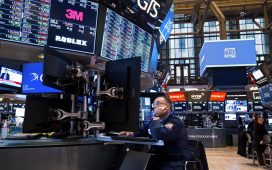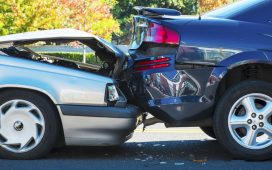How far do EVs need to be able to travel on a single charge to win over skeptics?
There has been a range contest among car manufacturers in the past few years. That will become less important. What matters will be that what is offered is environmentally friendly. Batteries that are too large and heavy are not good for the CO2 balance. Something in between is right.
You drove the VW ID3 battery-powered hatchback to Italy’s Lake Garda for your summer vacation. How was that?
We had a range of around 350 km (218 miles) and that suited us quite well.
The ID family starts with the numbers 3 and 4. What will the nomenclature look like in the end? Will it be the equivalent of the existing platform, i.e. from A00 to L?
The concept is to build fully electric versions for the main VW segments. The ID3 starts in the Golf segment, the ID4 corresponds to the Tiguan in terms of dimensions. In addition, a sedan will be added, and you know the ID-Buzz (electric minivan) study. There are still gaps in the nomenclature. We will find offer solutions.
Would you say that VW has started on time with the ID family? Or is VW too late?
The time is right. As long as electric mobility was in the niche with market shares below 1 percent, it made sense to only electrify existing platforms. We did that with the Golf and the electric version of the Citigo minicar. But now that volumes are coming into the markets, our own ID platform is the logical and best solution.
The production start of ID3 in Zwickau, Germany, was not an easy one. According to information from Automobilwoche in September, VW had to deploy about 500 additional employees to rework vehicles. Is the production of an EV still profitable?
Reworking is not the right word. We pre-produced vehicles in which we are now installing the software. That is true. We need employees for this. We are working extra shifts to meet the demand.
How important is the market value of VW to you? Tesla is much smaller and has ten times the market capitalization of VW Group. Do you understand how stock markets can create this situation?
I can understand it. Tesla is not valued as a conventional automotive company. Thanks to its high valuation, even ambitious expansion plans can be financed well via the market.
How will you make VW’s factories fit for the future? Some of them are more than 70 years old.
We have many new, modern locations. Unlike other automakers, we are converting entire plants to build e-vehicles. We are consistently exploiting economies of scale. That’s why EVs from four different group brands are starting up in Zwickau on the MEB platform.
VW wanted to establish production in a big way in Turkey. That was not possible. Now, you say it will be Bratislava, Slovakia.
Turkey is off the table. We decided to build up capacity in Bratislava. That means no cost disadvantage compared to Turkey. Also because of coronavirus, we have reassessed our capacity requirements and currently do not need an additional plant. But it remains a disadvantage that we cannot better tap into the Turkish market via a plant in Turkey.
You are also heavily shaking up top management, which has caused unrest in the company. Why the restructuring?
In the TMK division [the group’s top management unit,] around 30 colleagues out of around 300 have recently changed positions. That is a comparatively small number. Changes are important to improve. This applies to the company as a whole and to the management. That is why targeted rotation is also part of management development.
Personnel development seems to be your favorite topic.
It is crucial that the right people take on responsibility in the right place. Business is people. At least 70 percent of success depends on having the right people in management.
In a recent interview, you said that 80 percent of management restructuring has taken place, which means that 20 percent is still open. Who are the 20 percent?
Since then we have have moved on and new appointments have been made.
Last question: 2020 was a year that will go down in history. What has the coronavirus pandemic done to VW?
We work in a focused and consistent manner and take advantage of our market opportunities. During the pandemic, we have been able to increase our global market share by 0.5 percentage points this year. Of course, we miss the personal contact with our colleagues at our locations and in our markets. I can only talk to many of our business partners on the phone or via video conferencing. That’s not enough in the long run. Direct personal contact is important. So far, we have had only a few cases of coronavirus: 0.11 percent of the workforce is infected, in Germany the figure is 0.36 percent [as of mid-October]. I think we have managed this well.
